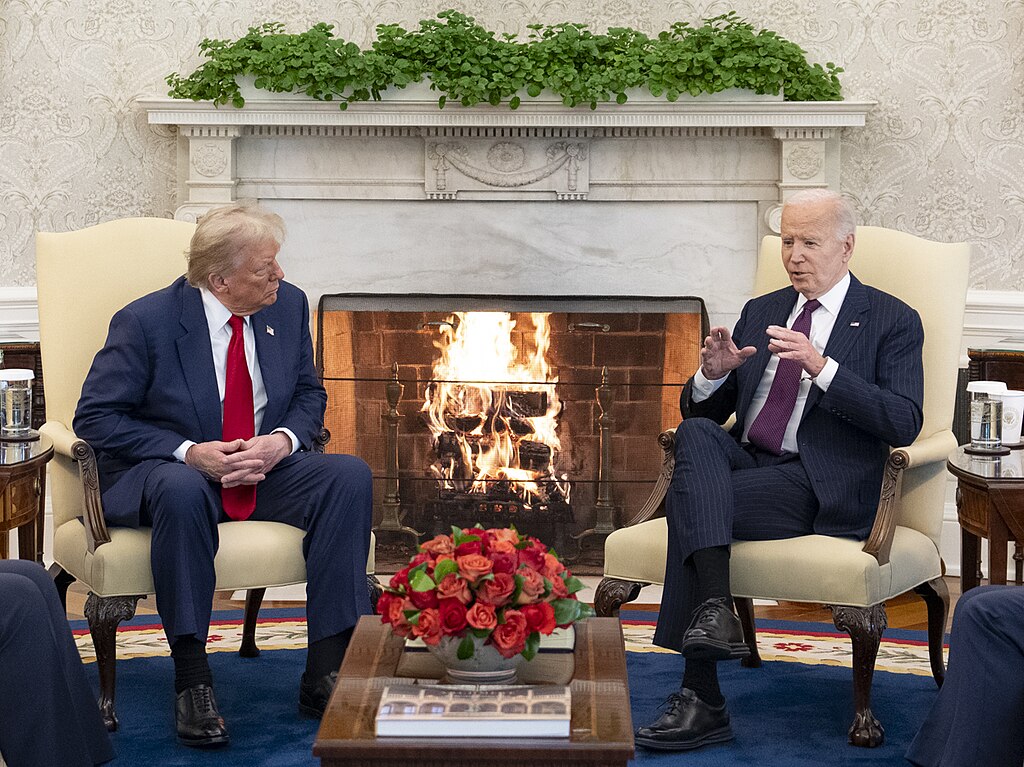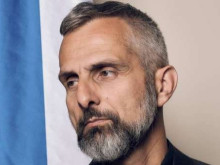Joe Biden leaving
On Monday, January 20, 2025, Joe Biden will hand over the presidency to Donald Trump. What will be the political legacy of the 46th President of the United States? Does he hand the country over to his successor in better shape? And is America stronger after four years of Joe Biden? Kateřina Weiss, Director of the Center for Transatlantic Relations (PCTR) at CEVRO University, offers a critical look at Joe Biden's tenure in the Oval Office.
His political career began in 1973. He had already retired once when Barack Obama chose Hillary Clinton as his successor for the Democratic nomination in 2012. However, her inability to defeat the politically inexperienced Donald Trump four years later brought Joe Biden back to the top, becoming the 46th President of the United States at the age of nearly 80. It is now clear that after fifty years in active politics, he is leaving the scene for good. And he's trying so hard to build his legacy that he's rather damaging it.

The one who cleared the way for Donald Trump's comeback
Biden's legacy will largely be viewed historically only by the success of his successor's presidency. Until the November election, his "national service" was defined primarily by his ability to defeat Donald Trump in 2020, but his governance and his unwillingness to give up a second term opened the door to a second term in the White House for Donald Trump, as a stronger, more popular, more politically experienced president enjoying the support of both houses of Congress for at least two years.
The world as Joe Biden took it over in January 2021 was safer than the one he is handing over to his successor. America was stronger and its enemies weaker. He started the first year badly: the botched withdrawal of the US and allies from Afghanistan showed an America unable to enforce agreements, weak and vulnerable. American public support for him immediately dropped below 50% and never recovered. Six months later, Russia invaded Ukraine. October 7, 2023 became 9/11 for Israelis, and hopefully not only for them. Despite arms shipments to both countries, however, the US share of defence spending has fallen from 3.7% of GDP to below 3% during Biden's tenure. NATO has become stronger, adding two significant members - Sweden and Finland, with most allies at least beginning to approach their Washington Treaty commitments. But the credit for this belongs more to Vladimir Putin than to Joe Biden.
Barack Obama's third presidential term
Biden's presidency has often been referred to as Barack Obama's third term. Not just because he was previously his vice president. It carried the same policy settings, sentiments and personas. Those under Obama pushed for a reset with Putin's Russia, limiting arms exports to Ukraine. When they returned to the administration under Biden, it was hard to believe they were serious about supporting Ukraine. US aid started late, was slow, severely restrictive and lacked any strategy.

There is more and more information in the public space about what it looked like in reality. Under Obama, these same people negotiated the so-called nuclear deal with Iran (the JCPOA), which was supposed to curb Iran's nuclear programme in exchange for sanctions relief. In his second year in office, Mr Trump withdrew from it and reimposed sanctions on Iran. And then Joe Biden came back to the White House and, wham, his administration started dealing with Iran again. Perhaps the attack on Israel in October 2023 and April 2024, or Iran's now completely transparent association with their proxies, who have been attacking Israel from all directions for over a year, contributed to the sobering. If the situation in the Middle East eventually calms down and a ceasefire with Hamas is reached, it will be in spite of the Joe Biden administration's Middle East policy rather than because of it.
The bridge that didn't connect
When he took office, Joe Biden wanted to be the "bridge" that would unite a divided American society. He promised to work with both political parties. This was partly successful in the end; without the active involvement of the Republicans in Congress, neither the Federal Infrastructure Investment Act nor the law that provides for investment in building microchip production capacity would have been created and passed. He has certainly pleased his supporters with his green policies and his reduction of fossil fuel extraction. As have his many progressive policies, his wokism, and his radical advocacy of diversity, equity and inclusion (DEI). But in doing so, he has divided Americans even more, rolling out the red carpet for Donald Trump's return to power.
Sleepy Joe, as his opponents derisively called him, is bidding farewell to the end of his term by making incredibly nimble policy decisions. They probably won't have much longevity, but they have already raised the eyebrows of many loyal Democrats with their controversy and sometimes bizarre nature. From the point of view of our interests, the division of NATO allies and EU member states into two groups with differently regulated imports of advanced microchips for AI, mainly from Nvidia, AMD or Intel, is completely incomprehensible. We find ourselves in the same group as most African countries in terms of credibility.
Joe Biden could have at least tried to put a positive, unifying end to his mandate in his farewell speech on Wednesday evening. List his accomplishments, brag about how he made America better, add a little false modesty that he couldn't have done it alone, sprinkle in a little American pathos, wish the people of the United States and the incoming president well. Yes, it was kind of there. But his dark warnings about the concentration of power (along with B. Obama had a far more significant majority of Democrats in both chambers in the first term), of the tech-industrial complex (apparently he only started to mind after part of Silicon Valley defected to the Republicans), of misinformation and the abolition of fact-checking on Facebook (after M. Zuckerberg's statements about "cooperation" with the Biden administration), or the attack on rich people, oligarchs and billionaires (a few days before he awarded the highest civilian state award to G. Soros, the campaign of K. Harris was supported by the highest number of billionaires ever).























